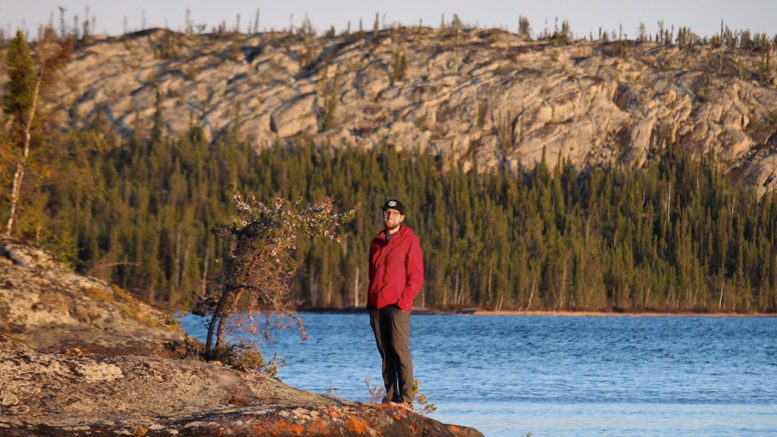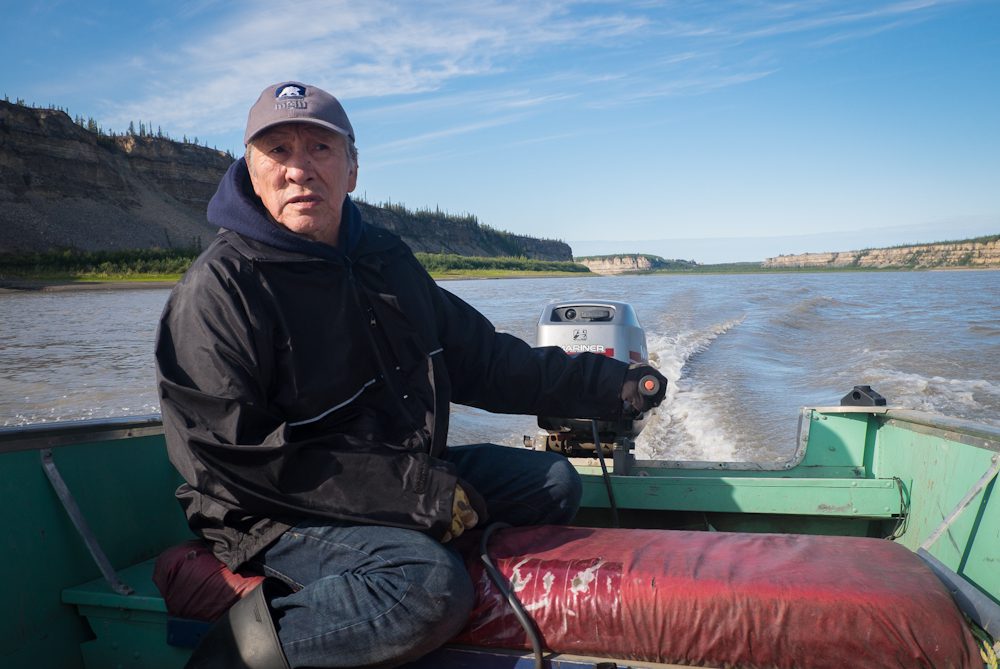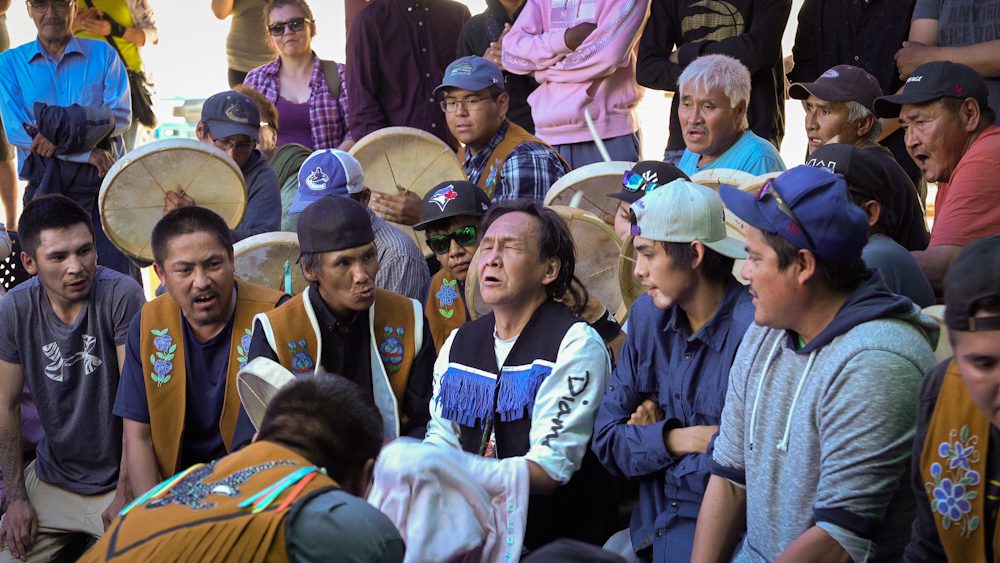Dear CKLB listeners and readers,
This open letter is to say mahsi cho to you all for the past four years.
While working for CKLB, I learned more than I ever could have imagined about Denendeh, its beautiful land and its beautiful people. I had the opportunity to travel to several communities and was always welcomed with open arms.
A few months after moving to the North in 2019, I went to my first handgames during Behchokǫ̀’s annual Ediwa Weyallon tournament. Now I try to go to tournaments whenever I can to feel the power of those drums.
That summer, I flew on the smallest plane I’d ever been on (but have since been on smaller!) towards Fort Good Hope. I was there to cover the Sahtú Secretariat Inc.’s annual general meeting. But I met Isadore Manuel and he offered to bring me out on the river to check on his fishing nets. He was patient and kind as he shared some of the history of the area. That history helped give context to what was being discussed at the meeting.
A few weeks before COVID shut down the world, I was in Inuvik meeting leaders from across the NWT. Unfortunately, meeting anyone else in person would be difficult for the next two years. Communities tried to adapt. The sense of gathering is strong across Denendeh and even a global pandemic wouldn’t prevent people from checking in on one another.
Some of those pandemic-time gatherings included commemorations of the 100th anniversary of Treaty 11. While attending the event in Tulita, Paul Andrew shared insights into the thoughts of leaders that signed the document one hundred years ago. When living in the bush back then, he said, people didn’t lie. Lying could be the difference between life and death. This is why leaders believed in the friendliness of Treaty 11. Sadly, that friendliness masked greed. As a settler, this is something I keep in mind to ensure my intentions are always honest and clear.
Later that week, James McPherson brought a group of us reporters up Kweteniɂaá (Bear Rock) and shared the sacred story of Yamoria. Atop the mountain, the beauty of the land was breathtaking. I can understand the deep desire to conserve it as such.
My colleague Peter Menacho was with me on that trip. Sadly, Peter has since passed on; I remember that time together very fondly. He introduced me to his cousins and aunt Charlotte. I had breakfast every morning in their home, and every day started with laughter. I learned there’s no better way to create a connection with someone than sharing food and laughs.
Last summer, I had the chance to travel to one of the NWT’s smallest communities: Nahanni Butte (twice!). The recreation team has to be one of the hardest working in the territory! They constantly cooked up a storm for everyone. I remember sitting with Trina Marcellais as she explained how best to cook a moose head over the fire. It tasted fantastic after roasting for nearly 10 hours.
On my second trip, I learned an important lesson: you never say no in the bush. While at a camp, I was complaining about being hungry and Lory-Ann Bertrand offered to cook up hot dogs. I refused; big mistake! I saw her disappointment and felt terrible. Turning down hospitality — especially on the land — is never a good idea. (I changed my mind and got some food.)
Mahsi cho to everyone mentioned above and to the hundreds of other people I’ve spoken to over the past four years. Thank you for trusting me and sharing your stories. Mahsi to my colleagues who have shared their time and wisdom with me; I’ve learned to be a better journalist and better person.
I’ve never felt a sense of place like I do now living in Denendeh. I recognize this is not my land, but it’s impossible to not feel a connection given the passion Dene have for it. Mahsi cho for sharing it with me. I’m not leaving anytime soon, but my time at CKLB has come to an end.
I look forward to meeting some of you again and others for the first time.
Once again, mahsi cho!
For CKLB Radio, I’m Francis Tessier-Burns







